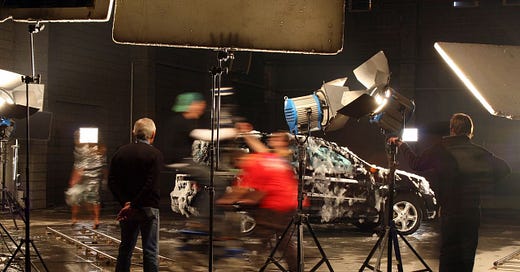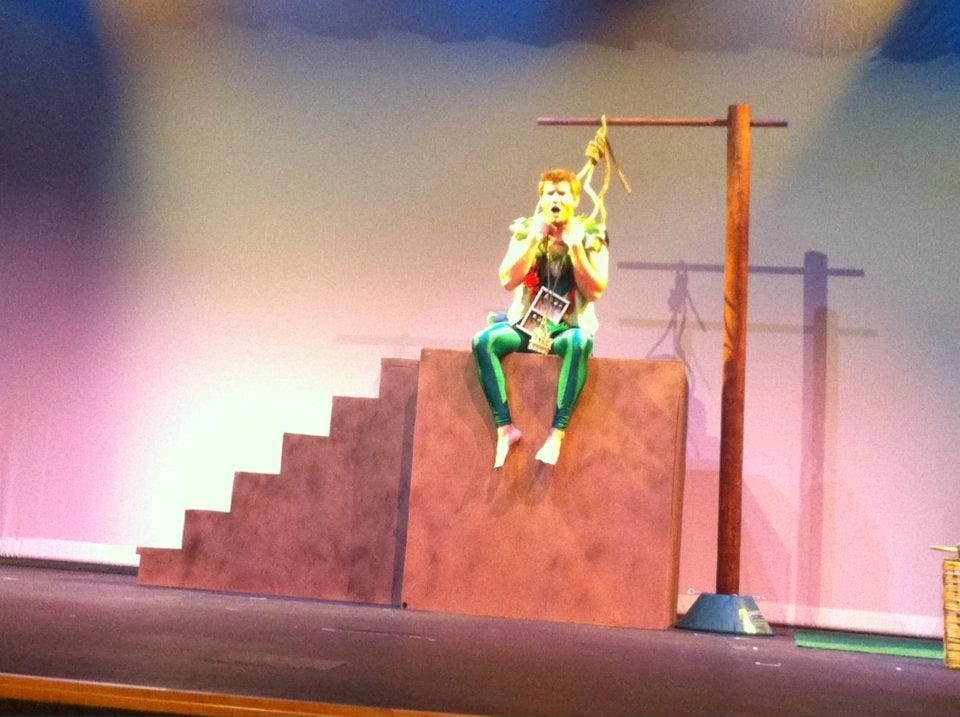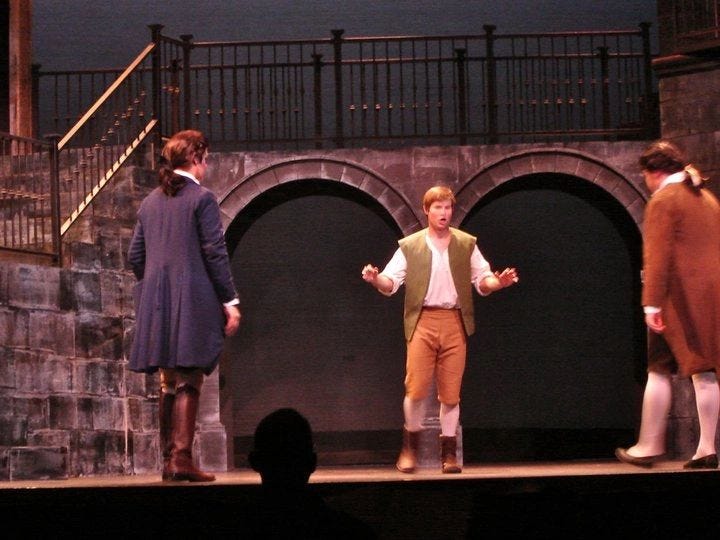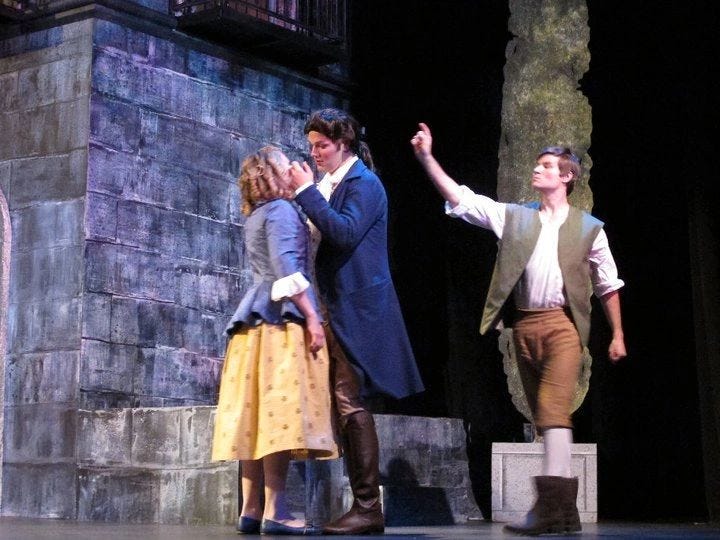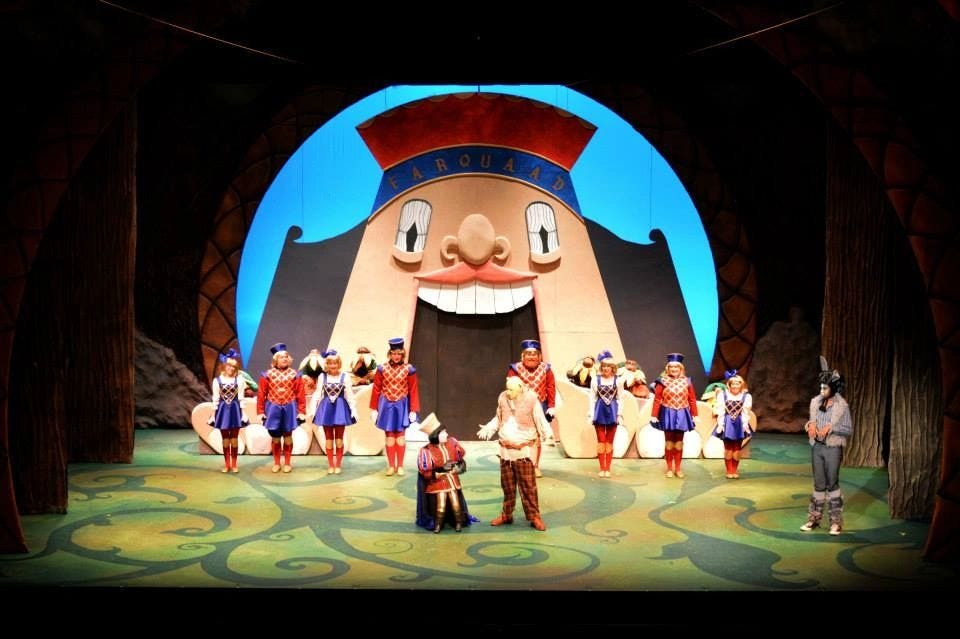Who’s really directing your life or career?
During the peak lockdown in the spring of 2020, I was watching a lot of personal development seminars online. I heard the late Bob Proctor say in a livestreamed seminar, "Most people are extras in their own movies!" It caused me to reflect back on my nearly 20 years of singing. But rather than an extra in my own movie, for me it was more like a chorister in my own opera.
Looking back on my younger 20-something years, I would have been quick to interpret such a statement to mean I was maybe doing too much chorus and ensemble work and not enough principal or solo work. Then, looking back on when I was doing more principal and solo work in my later 20s and 30s, I learned how principal roles can also feel like you’re still just a cog in someone else’s system—sometimes even more than a chorus role given all the attention on you!
Too many young singers feel the pressure to think they have to "make it" ASAP into the operatic and musical theatre industries and get as many consistent leading roles on the resume as possible, as well as broadcast a “perfect” career on social media. Otherwise they risk being deemed an unemployable failure. It’s one reason so many fall into the “starving artist” mindset and take whatever gigs they can get.
Some singers end up risking their vocal health by singing out of their fach or range or beyond their current level of vocal maturity; even more performers face serious financial consequences—and subsequent physical and mental health problems—by committing to something that may not even pay a living wage or even offer a reasonable schedule. In my case, it was more of a risk to my financial health that I realized.
I was one of those extra eager younger aspirants. Then I began teaching them, and I endured the teacher‘s edition of the same race to the bottom. I wasn’t just doing artistic work I didn’t really want to do that didn’t really pay me what I needed, I was also teaching for less than I was worth, and I was not always doing the kinds of teaching that originally drove me to pursue a teaching career.
It wasn’t until years later when I had a chance to start working with a personal development coach that I was able to realize more of what I authentically wanted to be doing in this life.
But rather than go further down too many rabbit holes of developmental appropriateness or the many systemic problems in the performing and teaching industries, let’s stick with the title question and as well as a question that doesn’t get asked enough in the lead up to our careers nor while we are enduring our many career challenges and industry issues. It is all the more important now given the long-term uncertainties of our industries going forward…
The Question: What do you really, really want?
It's such a simple question, yet we rarely allow ourselves to think about the true answer. We're often afraid of not having or giving the "right" answer.
So if you could be performing or creating anything you truly want to perform or create, what would that be? And for whom, with whom, where, when, how, etc.? When are we actually performing what we really want to perform? And if we are performing or doing other creative work we really want to do, how often, if ever, are we able to do it when, where, how, and with whom we really want to do it?
The biggest follow up question, which drove me to design my original coaching programs to empower fellow artists and educators to have more authentic career success: How can we do more of the artistic or related work we want to do in ways that don’t require being solely at the mercy of someone else’s decision making?
For myself, my degree recitals were my first real opportunities at feeling “artistically empowered” and having a chance to make more of the music I truly desired to make. I was otherwise too preoccupied with going through the motions to please as many as possible and being an “extra” in my own movie!
A case in point is the penultimate semester of my doctoral studies.
The penultimate semester of my doctoral studies.
In the spring semester of 2011, I sang the role of Masetto in Don Giovanni at the University of Arizona during the third year of my doctoral studies. I enjoyed nearly everyone I performed with, and I was close friends with most in the cast; it was a great and fun show overall to be in—no regrets! BUT the role was really nothing new for me. Halfway through my undergrad 9 years earlier, I sang it at the Brevard Summer Music Festival in North Carolina. So as an older doctoral student, the role didn't offer much more room for further growth. It’s not like it’s a title role and it doesn’t exactly have any arias or musical lines that require extra mastery.
So during that semester, I was experiencing more self-actualization in between my scenes and on my days off as I was exploring the abundance of 19th-century German Lieder and developing the proposal for my dissertation.
During the initial rehearsals a month into the semester, I also had my doctoral written comprehensive written examinations—six hours of carpal tunnel hell typing away to prove I had absorbed enough knowledge worthy of being a doctoral candidate. A few days after the Don Giovanni performances came the daunting follow-up oral examination. And the following week, I had yet another intimidating hurdle to get past: presenting my dissertation proposal to the graduate committee.
That semester, I also had concerts with the Tucson Chamber Artists (now True Concord Voices and Orchestra), I was in the chorus of Otello with Arizona Opera, I was still doing my work as an opera teaching artist at four different elementary schools in Tucson, I was teaching some private lessons, I was singing weekly solos at church, I was still auditioning for future opportunities, and I still had a couple of other "core" graduate courses to fulfill my degree requirements!
So the spring of 2011 was very busy semester. I’m kind of surprised I found time to sleep and go to the gym five days a week. And I’m grateful for all that I gained through it all!
An extra in my own opera
Though I was mostly present and engaged at every rehearsal, Masetto in Don Giovanni wasn't necessarily my highest priority, and with the role being smallish, the show did feel like I was being an "extra" in my own opera in many ways. Aside from a short aria and a few solo bits, the character mostly gives attention to the other characters during the show serving as a foil to help them further the plot along. Even the aria "Ho Capito" is sung in deference, albeit sarcastically, to the title character and his higher class status. What he says loosely translates to, "I understand, yes sir, I do. I bow my head and go away..." as he just allows Giovanni to take away and likely seduce his wife-to-be Zerlina.
And when the other singers weren't the stars of my own movie—like in those moments you wonder why you weren’t singing the main role!—there'd be times where the star of my movie was the director, conductor, accompanist, chorus master and others in the production. The biggest reason why this role in some ways amounted to being an extra in my own movie was that I was mostly doing the role for my advisor, who was also the director and didn't have many baritones available. In some ways it felt like I was just the extra in his movie, but in more ways, I was really often just waiting for him to just direct my movie. This can be a pretty typical development for students during their doctoral studies—after all, happy advisors make for a greater likelihood of passing and graduating!
But as the late Jim Rohn said, "If you don't design your own life plan, chances are you'll fall into someone else's plan. And guess what they have planned for you? Not much." So whether it's college, graduate school, a training program, or life on the job, there are many areas of our lives where we can likewise find ourselves failing to have definitive plans in place and we just allow others to dictate our goals and destiny.
"If you don't design your own life plan, chances are you'll fall into someone else's plan. And guess what they have planned for you? Not much." - Jim Rohn
“You don't have to be famous…”
Meryl Streep may have said, "You don't have to be famous. You just have to make your mother and father proud of you." BUT is that really what you want? Sometimes we can also get caught up trying to just please our parents or loved ones at the expense of maximizing our ability to make the most of ourselves. Other times, we're guided to what well-meaning teachers, mentors, or counselors may genuinely think is in our best interest, and we put too much of our trust in them because we fear taking an unknown risk all on our own.
More often though, there's no one specific to blame other than our planted subconscious fears that put us in a habit of just conforming to doing what everyone else is doing or aiming for the same goals as everyone else. Hence the late Earl Nightingale regularly said, "The opposite of courage in our society is not cowardice... it is conformity." Take a moment to think about where you might be conforming versus courageously doing what you really want!
For most performing artists, solo performing is how and why many of us were motivated or encouraged to further develop our talents, and solo performing ends up being how nearly everyone ultimately gets evaluated and hired for much of the work. Yet, we hardly ever “fly solo” in designing the lives we actually want; instead we often find ourselves going about our lives and careers like we're just trying to fit into someone else's ensemble. We work so hard to compete to "belong," we lose sight of the one show we originally dreamed of. Hence I wrote in a post about how we need to end competition as we know it and wish everyone to have success.
The more we can focus on doing specifically what the authentic artists within each and every one of us truly desire to do and figure out innovative ways to do them, the industries' competition and resulting toxicity and the other systemic challenges will become less relevant to our day-to-day lives. We don’t have to allow ourselves to just be extras in our own movies waiting for the so-called “gatekeepers” to give direction.
We don’t have to just compete for the few finite opportunities we learned about in school, we can focus on creating the infinite opportunities that are yet to be created as the stars of our own movies as we allow ourselves to become all we're meant to become and more! If you want help figuring out what that means for you as we strive to make the most of these unpredictable times, feel free to send me a message. Thanks for reading!

